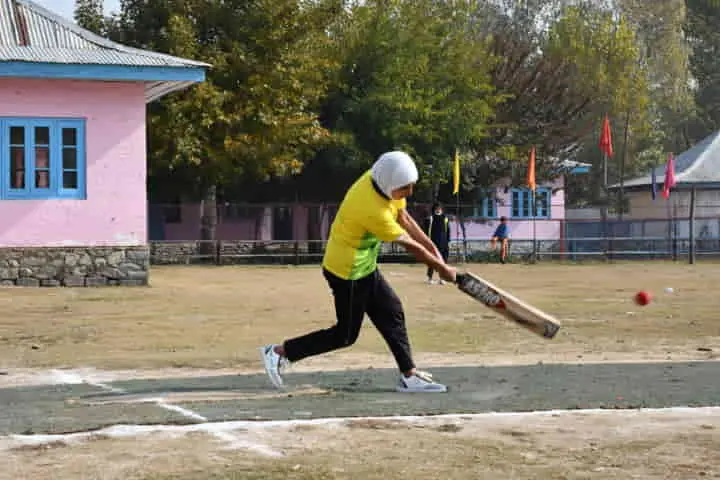Over two years after its transformation from a State to a Union Territory (UT), Jammu and Kashmir is getting back a commission of the empowerment and protection of women. The UT administration on Tuesday approved the constitution of “Jammu and Kashmir Commission for Women” for which a chairperson and four members would be appointed shortly.
According to the Government Order issued by Sheetal Nanda, Commissioner-Secretary Social Welfare, JKCW would have powers to investigate and examine all matters related to the safeguards provided for women under the Constitution and other laws. It would also review extant provisions of the Constitution and take suo motu cognizance of various issues related to women’s rights.
The Commission would be headed by a female chairperson committed to the cause of fair sex. It would have five government nominee members, each having not less than 10 years of experience in the field of women welfare, administration, economic development, health, education or social welfare. At least one member would be from Scheduled Castes (SCs) or Scheduled Tribes (STs). The Member Secretary shall be either from the All India Services or an officer of the rank of Special Secretary in the UT’s Civil Services or an expert in the field of management, organisational structure of sociological movement.
The Commission has been mandated to investigate and examine all matters related to safeguards provided for women under the Constitution and other laws. It will recommend steps for effective implementation of those safeguards which can improve the condition of women in the UT.
From time to time, the Commission would review existing provisions of the Constitution and other laws affecting women and recommend amendments for remedial legislative measures to meet any lacunae, inadequacies or shortcomings in the legislation,” said a bureaucratic source. It would take up cases of violation of provisions of the Constitution and other laws related to women with appropriate authorities.
JKCW has been empowered to look into complaints and take suo motu notice of matters related to deprivation of women’s rights, non-implementation of laws enacted to provide protection to women and achieve objective of equality and development and non-compliance of policy decisions, guidelines or instructions aimed at mitigating hardships and ensuring welfare and providing relief to women; and take up the issues arising out of such matters with appropriate authorities.
The Commission can also call for special studies or investigations into specific problems or situations arising out of discrimination and atrocities against women and identify constraints so as to recommend strategies for their removal. It would undertake promotional and education research to suggest ways of ensuring due representation of women in all spheres and identify factors responsible for impeding their advancement like lack of access to housing and basic services, inadequate support services and technologies for reducing drudgery and occupational health hazards and for increasing their productivity.
The Commission would be authorised to conduct inspection of jails, remand homes, women’s institutions or other places of custody where women are kept as prisoners or otherwise and take up with concerned authorities for remedial action, if found necessary. It would also fund litigation involving issues affecting a large body of women.
The Commission will submit periodical reports to the Government on any matter pertaining to women and in particular various difficulties under which women toil. It would prepare its annual report giving a full account of its activities during the previous financial year and forward a copy to the Government. Annual and audit reports of the Commission will be laid before the Lieutenant Governor.
Then known as the Jammu & Kashmir State Commission for Protection of Women & Child Rights, it was an amalgamation of the two statutory bodies for protection of the women’s and children’s rights till J&K’s reorganisation and bifurcation into the UTs of J&K and Ladakh in August 2019. The amendment to the law for the amalgamation was made by the then Governor Satya Pal Malik in December 2019.
Subsequently, an eminent advocate at the Supreme Court, Vasundhara Pathak Masoodi, was appointed as the Commission’s chairperson on July 9, 2019 on the recommendation of a three-member selection committee. However, the Commission was abolished as per J&K Reorganisation Act on 30 October 2019. It was among a number of Commissions, Boards and organisations abolished by the Parliamentary legislation.
Video: Kashmiri women march in support of women in Afghanistan:
A group of Kashmiri women protests for the rights of women in #Afghanistan. So beautiful. Thank you for your support. I can’t wait to visit #Kashmir one day.
pic.twitter.com/DNzd9icKle
— صابر ابراهیمی (@saberibrahimi) February 7, 2022
Previously the erstwhile State of Jammu and Kashmir, on the Central pattern, had two separate Commissions for empowerment and protection of the rights of children and women. The Commissions were constituted in 1999 following India’s signature to certain UN conventions. Almost all States and UTs constituted such Commissions. Concurrently the National Commission for Women (NCW) had a mandate of dealing with the petitions and complaints involving spouses living in two different States or UTs. It also had powers to deal with the matters of Non-Resident Indians (NRIs).
Eminent physician and a former Principal of Government Medical College Srinagar, Dr Girija Dhar, who also served a stint with the J&K Public Service Commission, was appointed as the Women’s Commission’s first chairperson. Later, during Omar Abdullah’s government (2009-2014), the National Conference MLC Shameema Firdaus was appointed as the Commission’s chairperson.
Peoples Democratic Party’s member and former BBC producer Nayeema Ahmad Mehjoor was appointed as the Commission’s chairperson on 24 June 2015 by Mufti Mohammad Sayeed’s PDP-BJP government. As she was left with just four days of her three-year tenure, she resigned on 20 June 2018—a day after Mehbooba Mufti’s government fell due to BJP’s withdrawal of support.
Also Read: In Kashmir, women entrepreneurs are in prime focus after Sitharaman opens purse strings




















